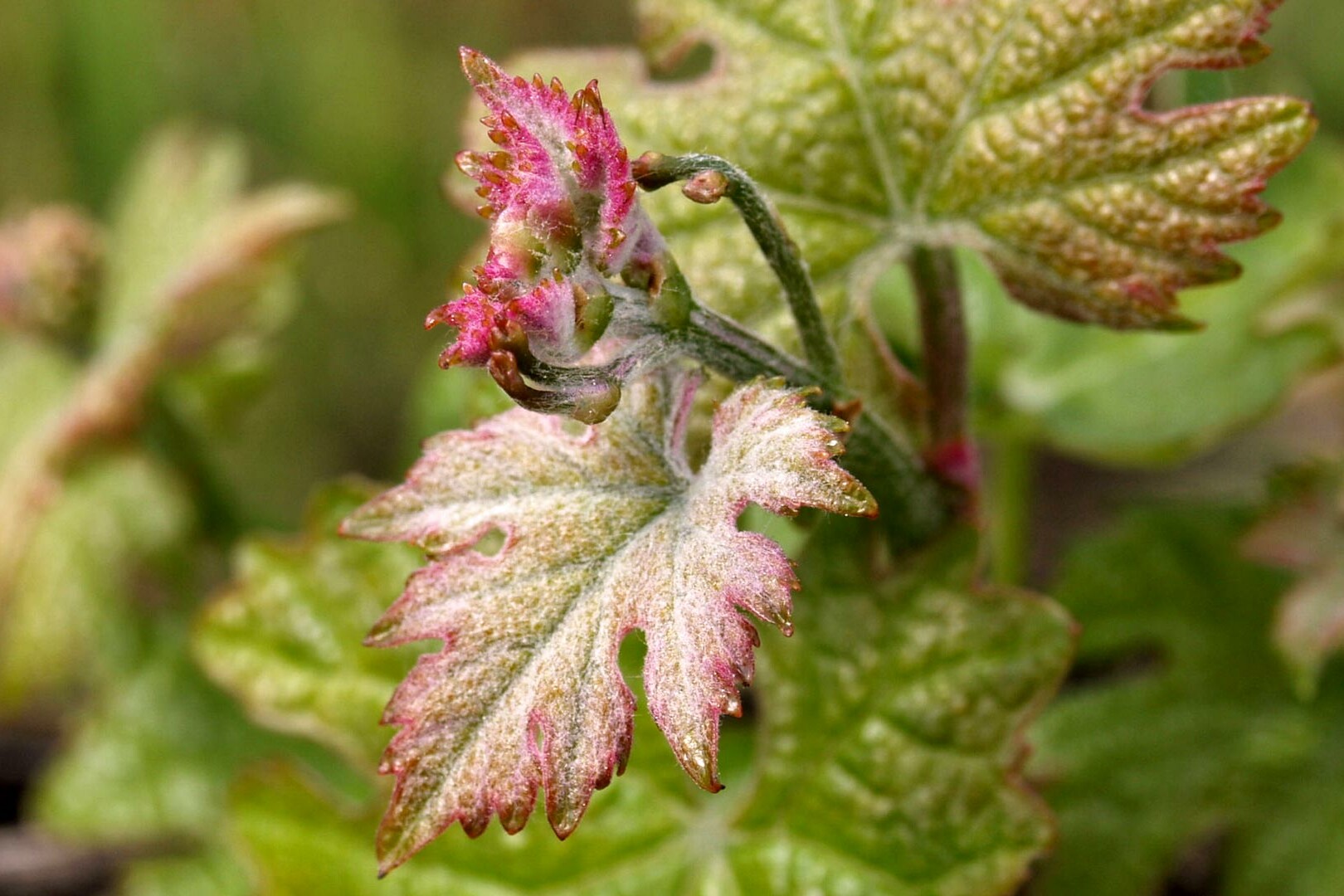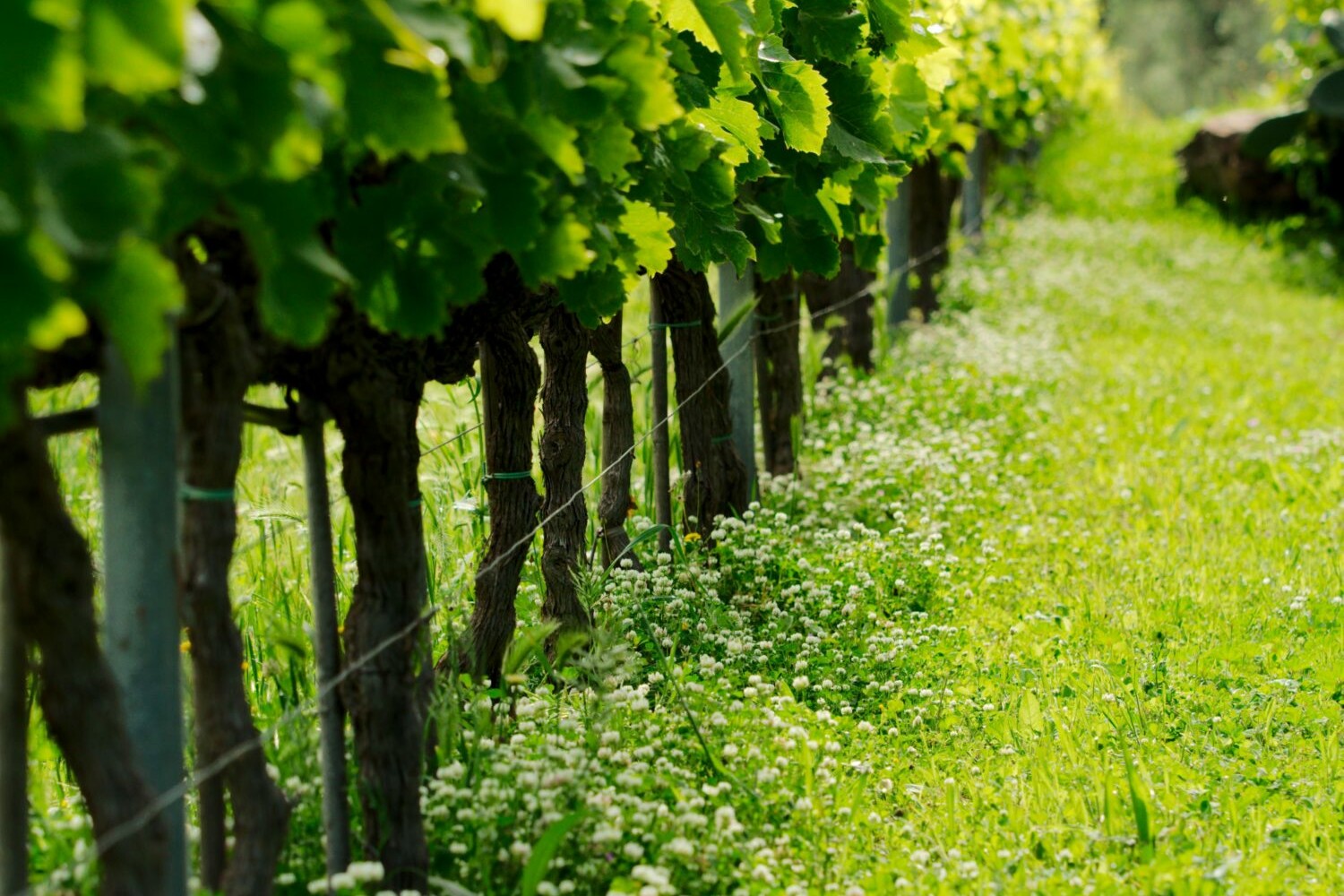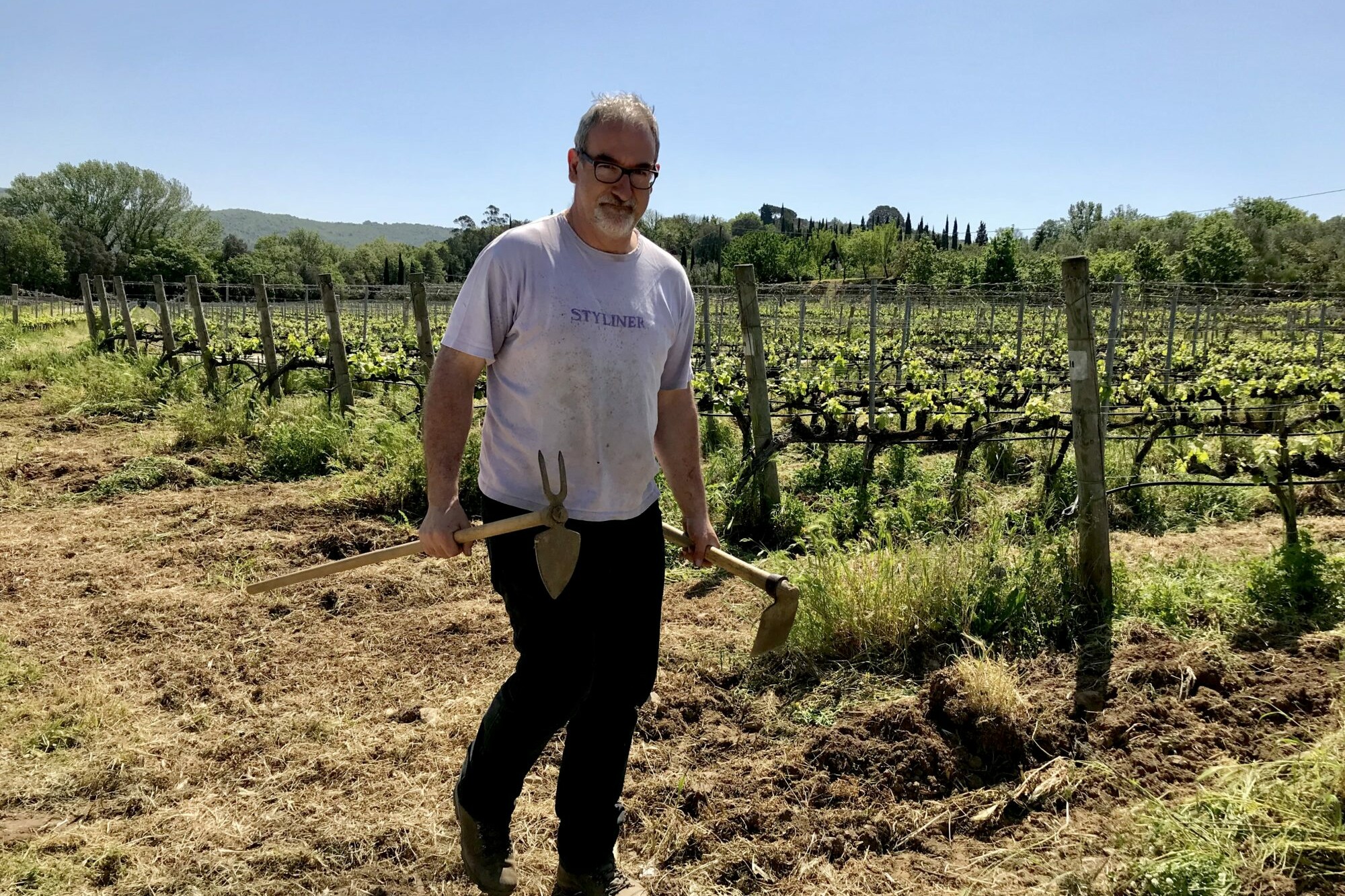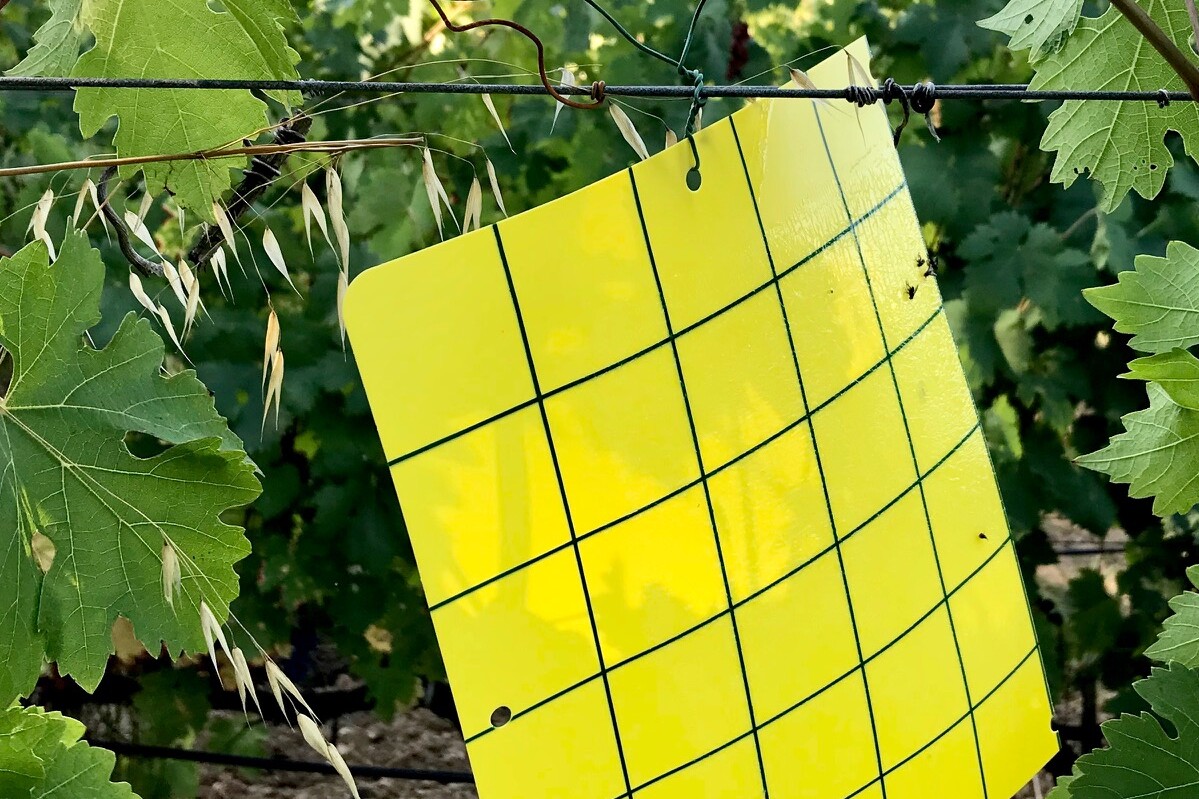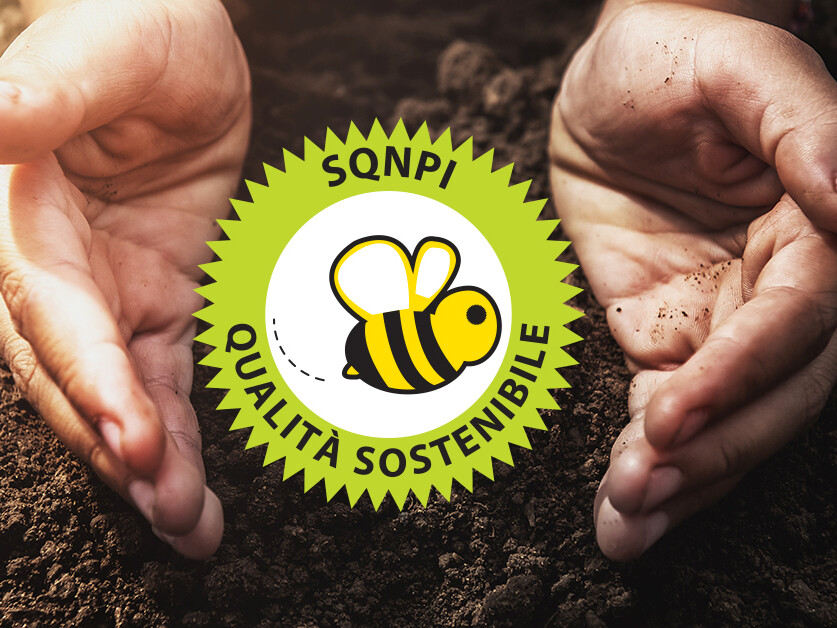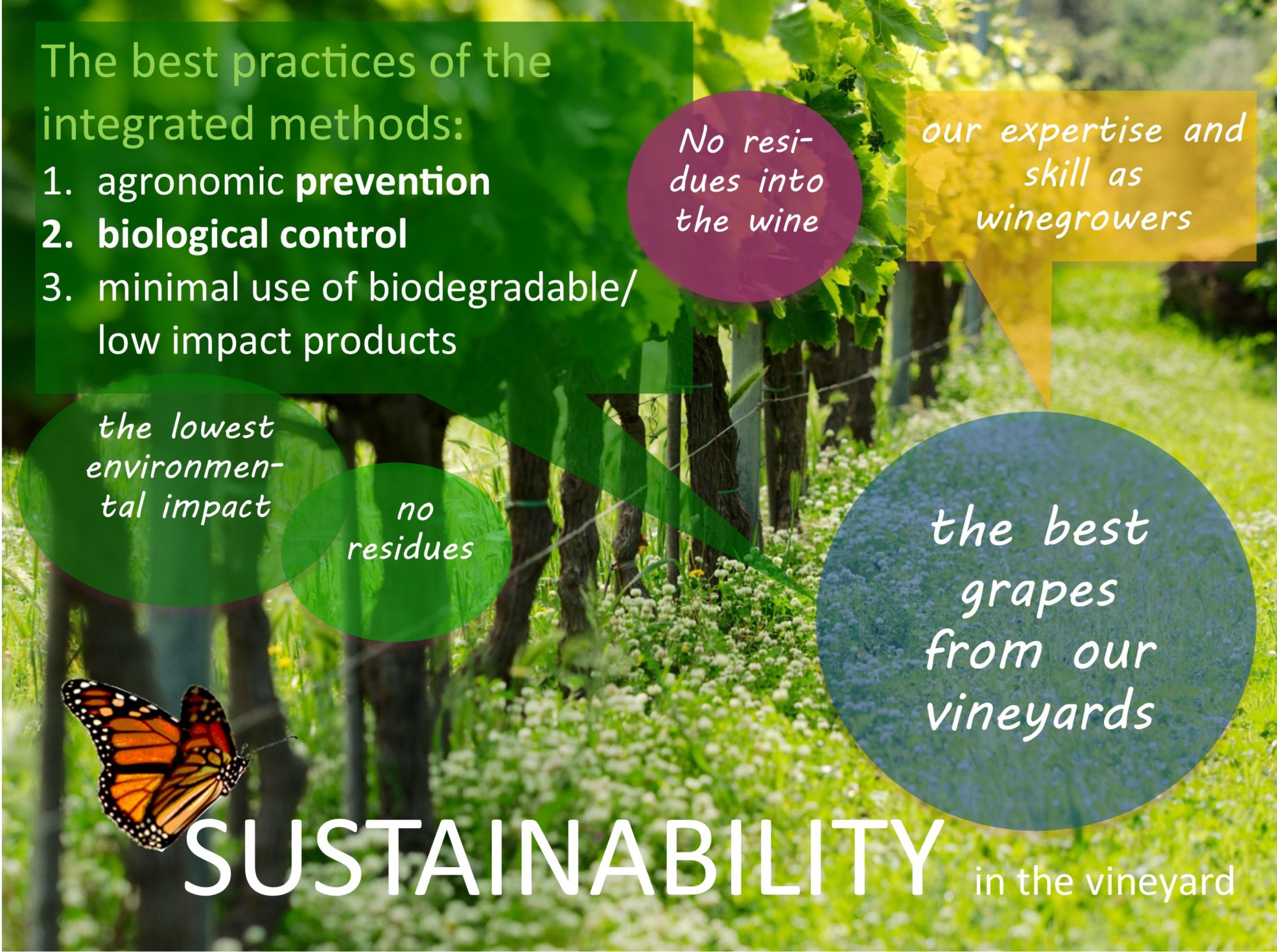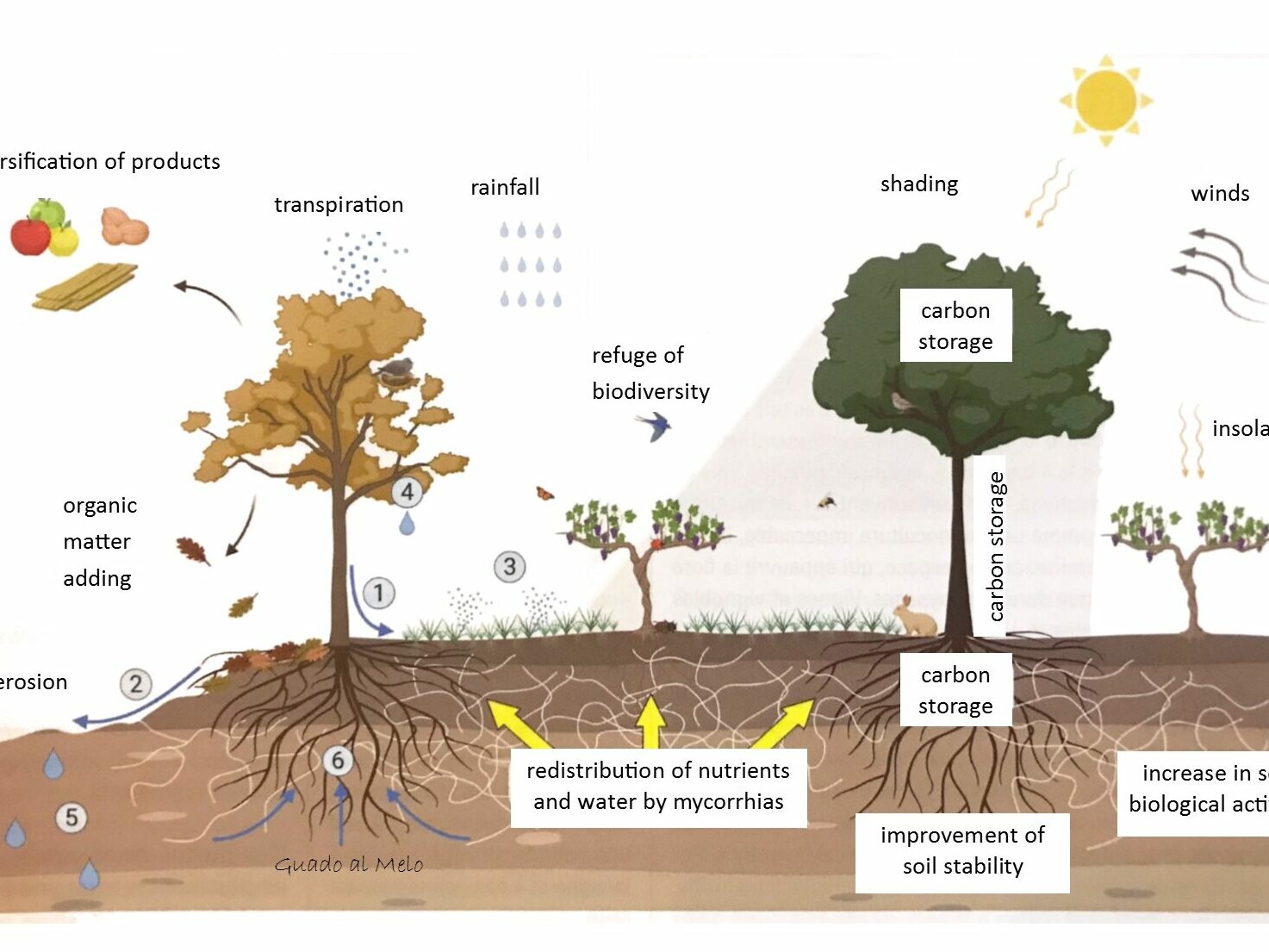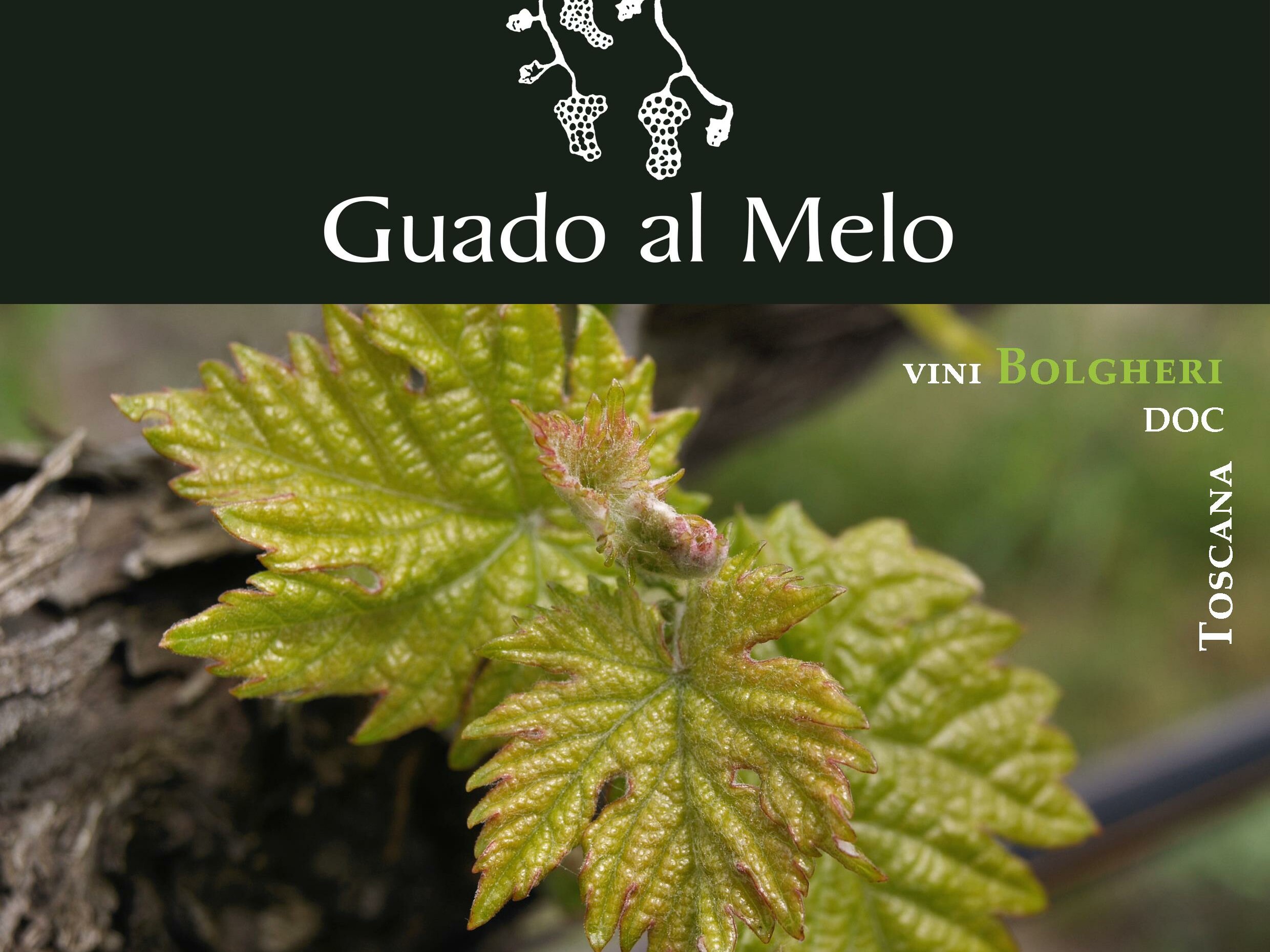We come from a family of winegrowers and our sustainable approach was born with the estate itself. We have always adhered to the integrated viticulture system of the Tuscan Region. In 2009 we joined the first Italian sustainability certification, called Magis. In 2022 we achieved the single national sustainability standard (Sistema di Qualità Nazionale di Produzione Integrata).
But what does it all mean?
Making sustainable wine means, in a nutshell, working effectively now while preserving resources for future generations.
The idea that human activities could negatively affect the environment is ancient. However, it was only in the 1960s that the irresponsible industrialisation of the countryside led to the emergence of an more widespread environmental consciousness.
It was then that the idea was born that it was possible to use research to create a new agriculture, capable of responding to human needs, but more respectful of the environment and health. Thus, integrated viticulture (agriculture) was born. Over time, research has allowed practices to continuously evolve, reducing the negative impact on the environment and on our health.
A major leap forward was made in the 1990s, when the broader concept of sustainability was born, combining environmentally friendly farming practices with the concept of economical production and respect for the social sphere.
Here are some key terms and our sustainable choices:
This is the area of sustainability that includes working practices in vineyard management. It is a system that has evolved over time, regulated in Italy by the regional authorities, which admits only the best practices, taken from tradition and the best innovations that have proven to be effective and have the lowest environmental impact. Priority must be given to biological control and prevention practices. Any intervention must be done in a targeted and differentiated manner: only where it is needed, when it is needed and in a specific way according to the needs of each micro-zone, including accurate monitoring systems. Some basic practices of integrated viticulture are now compulsory for all Italian wineries, but full adherence to these principles is on a voluntary basis.
The leap forward that led to the birth of integrated viticulture depended above all on the great development since the 1950s of knowledge about plant biology and pathogenic organisms. In particular, ecology, the science that studies the mechanisms of interaction between animal and plant populations living in a environment, was born. Studies have increasingly emphasised the importance of vineyard management as a complex ecosystem, an integrated ecological system where the various players intervene substantially in the nutrient cycle, in impacting soil quality, and in containing pests and diseases.
Biodiversity in the vineyard has not only environmental but also agronomic value. The wealth of flora in and around the vineyard promotes the presence of micro-fauna that are useful in containing certain vine pests. Soil micro-organisms (bacteria, fungi, mycorrhizae, etc.) degrade organic matter and make mineral elements available to plant roots. Earthworms modify the communities of bacteria and protozoa in the soil by digestion and operate a positive selection on fungi, improve the availability of water and oxygen in the soil, promote the growth of flora and the development of micro-organisms that are agonists of vine root aggressors.
The quality of the soil is crucial for the vitality and health of the vines. Intensive vineyard management has proven to be counterproductive because it increasingly worsens the characteristics of the vineyard and thus requires ever greater human input. Conversely, well-managed cover and a high biodiversity index improve the balance of the vineyard over time. Low-impact interventions protect the soil by preventing its compaction and the accumulation of pollutants.
Sustainable management means less impact of the vineyard on the landscape. Our vineyards are small and integrated with hedges, trees, olive groves and woods. Ecological management makes them ‘green corridors’ that can be travelled by small animals moving in the area and into the surrounding woods. A low, wide-meshed fence protects our vineyards from wild boars, but allows small, not too harmful fauna to pass through. The underground winery blends into the landscape.
The vineyard is not demanding of water, provided it is cultivated in the right environment, with soils that allow for root expansion like ours. We have chosen native species that do not require irrigation for the spaces around and on the ‘green roof’ of the cellar, such as olive trees and other plants of the Mediterranean scrub. Wine production generally involves the high consumption of water especially for cleaning and hygiene of the wine cellar. We have a rainwater collection and recycling system to contain this, saving at least 40% of potable water. Cellar waste water is purified with a biodigester.
The underground cellar allows energy savings of at least 70 per cent compared to an equivalent above-ground cellar. It maintains temperatures and humidity suitable for wine in a natural way. Well-designed skylights and patios allow sunlight to illuminate the most used work areas. Energy-efficient lighting fixtures and machinery have been chosen in the winery. Fuel consumption is limited thanks to the integrated viticulture concept aimed at reducing inputs to the vineyard.
The principles of bio-architecture, which inspired our winery, bring together several cornerstones of sustainability. the completely underground structure fits completely respectfully into the landscape. In addition, the underground construction makes it possible not to use energy to condition most of the interior spaces. In fact, there is adequate temperature and humidity all year round. Natural lighting of the most important work areas is provided by carefully designed skylights. A rainwater collection and recycling system preserves water resources. Finally, waste water is purified with a biodigester system
An activity is also sustainable if it is able to be self-sufficient, thus guaranteeing an income for the people who work in it and for the allied companies. Sustainable agriculture does not neglect the social aspects of an activity: its relationship with the land, respect for people and the landscape, … It includes the preservation of the cultural aspects of its product, which must be handed down and disseminated. It attaches great importance to respecting the rights and health of workers: safety at work, valuing and training them.
Insights
Webinar domani con Michele Scienza
14 February 2021
Agroecology in the vineyard, our present and future
28 December 2020
Our new brochure
22 February 2018
